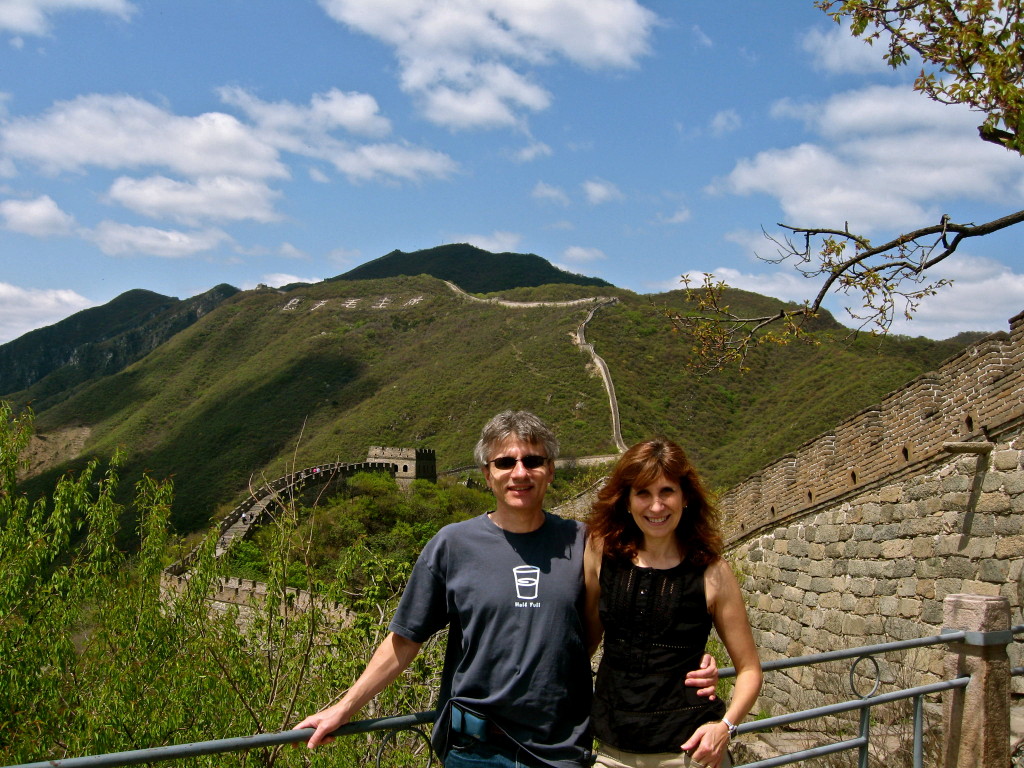Podcast: Play in new window | Download
Subscribe: Apple Podcasts | RSS
Dr. Denise Montell is the Duggan Professor of Molecular, Cellular, and Developmental Biology at the University of California, Santa Barbara. She received her PhD in Neuroscience from Stanford University, and afterwards completed an American Cancer Society postdoctoral fellowship at the Carnegie Institute of Science. She served as a faculty member at the Carnegie Institute and Johns Hopkins University before joining the faculty at UC Santa Barbara. Denise is with us today to tell us about her journey through life and science.
Denise began her independent academic career as an Assistant Professor of Biological Chemistry at the Johns Hopkins University School of Medicine. She rose through the ranks from Assistant to Associate to Full Professor of Biological Chemistry and also served as director of the graduate program in Biological Chemistry and founding Director of the Johns Hopkins Institute for Basic Biomedical Sciences Center for Cell Dynamics. After more than 20 years at Johns Hopkins, and 25 years in Baltimore, Denise and her husband Craig returned to California in 2013, accepting positions as the Duggan Endowed Professors of Molecular, Cellular, and Developmental Biology a the University of California, Santa Barbara. They have two children: Amanda, a recent graduate of NYU and Brandon, a Computer Science major at Brown University.
The mission of Denise’s lab is to uncover the fundamental mechanisms that control how cells build and maintain normal adult tissues so we can harness these mechanisms for the benefit of human health. One crucial feature of tissue homeostasis is maintaining the proper balance of cell survival and death. In order to eliminate abnormal or dangerous cells, organisms have evolved cell suicide mechanisms. However excess cell death can cause degenerative diseases, so it is crucial to achieve the proper balance between survival and death. They have discovered that cells that have progressed far along the the programmed cell death pathway known as apoptosis (Greek for “falling to death”) can actively reverse the process and survive. This process, which they have named anastasis (Greek for “rising to life”) has implications for cancer, degenerative disease, and regenerative medicine.

Please take this as constructive criticism: there is, you know, a plethora of words that you can avail yourself of in order to express you appreciation for Dr. Montell’s work. One must not always say “fascinating.” Here are some alternatives. That is exciting. That is thought-provoking. That is intriguing. That is tantalizing. That is fantastic. That is marvelous. Alternatively, you can use more colloquial phrases such as that’s awesome. That’s really cool. Wow.
I appreciate your constructive feedback and suggestions for adding variety. This is something I have been working on in more recent interviews. It can be challenging not to default to my favorite words in the excitement of the conversation. Thanks for taking the time to comment!
I had forgotten I had left that asinine post until today. When I searched for the post and saw that you had replied my heart sank. I am very sorry for being so tactless. On some level yes, my comment hit on something about the interview that you could have done better. But I should have known better than to comment on something so trivial. I am disappointed in myself for having focused on the negatives instead of highlighting the phenomenal work that you do. As someone in the sciences, I find your ability to look at the people behind the science nothing short of wonderful. If someone were to hand me the mic and tasked me with conducting that interview, I would have done absolutely terribly. Your voice is perfectly clear and wonderfully melodious. Your appreciation of the subject seems to be genuine and if it isn’t then WOAH you fooled me! I’m a fairly good writer, but a speaker I am not, so why I felt entitled to make such a negative comment, one masquerading as constructive criticism, is beyond me. I thank you for your exceedingly classy response and apologize for my lapse in decency. Best of luck and keep up the great work.